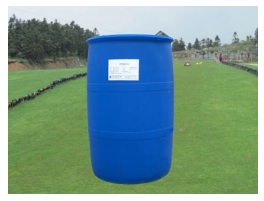Generally speaking, biosurfactant has excellent performance in pollution control. Due to the strict requirements of biosurfactant production conditions such as temperature and pressure, the product extraction is difficult, and the separation and extraction of tile products and the purification process of crude products are complex. Therefore, the scale of biosurfactant fermentation production in China is small and the product price is high. Therefore, the cost and other parties are considered Surface factor biosurfactants have not been widely used in soil remediation.

However, the extensive application of biosurfactants in bioremediation needs: 1) optimizing the screening, culture conditions and extraction methods of Biosurfactant Producing Bacteria; 2) genetic improvement of Biosurfactant Producing Bacteria by means of genetic engineering, in order to obtain high-yield bacteria and reduce the production cost of biosurfactants, biosurfactants are widely used in bioremediation However, the safety of genetically engineered strains released into the environment should be considered.
The application of biosurfactants is often beneficial in the near future. When biosurfactants are selected for bioremediation, new, efficient and low toxic biosurfactants should be developed. Carbon sources similar to the pollution sources should be selected to ferment biosurfactants. Low and effective concentration of biosurfactants should be applied directly to the oil contaminated environment Sex agent producing bacteria or bacterial agents are good choices to improve the repair efficiency. A kind of
The hydrophobicity of the cell surface determines the contact degree between the cell and the droplet. Biosurfactant molecules can use their hydrophilic or hydrophobic groups to lock on the surface of microbial cells and expose the other end to form a regulatory membrane controlling the hydrophobicity or hydrophilicity of the cell surface, and directly affect the biodegradation rate.
The effect of biosurfactants on bioremediation process.
The role of biosurfactants in the initial stage of oil pollution degradation is not major, or even negative. Biosurfactants are more likely to help cells to separate from hydrocarbon compounds in the later stage, thus facilitating the alternation of old and new bacteria on the surface of hydrocarbon compounds, thus playing a positive role in promoting degradation.
There are two possible mechanisms for biosurfactants to promote the degradation of petroleum pollutants
Biosurfactant can increase the oil-water interface area and effectively diffuse the saturated hydrocarbon components in oil, thus facilitating the direct contact between microbial cells and larger oil droplets. After biosurfactants form micelles, the organic compounds are dissolved in the micelles, which increases the water solubility of the diameter materials, making them easy to be absorbed and degraded by cells.